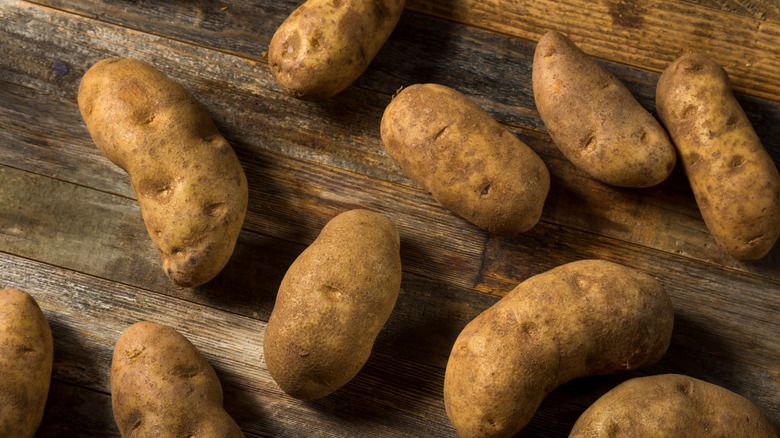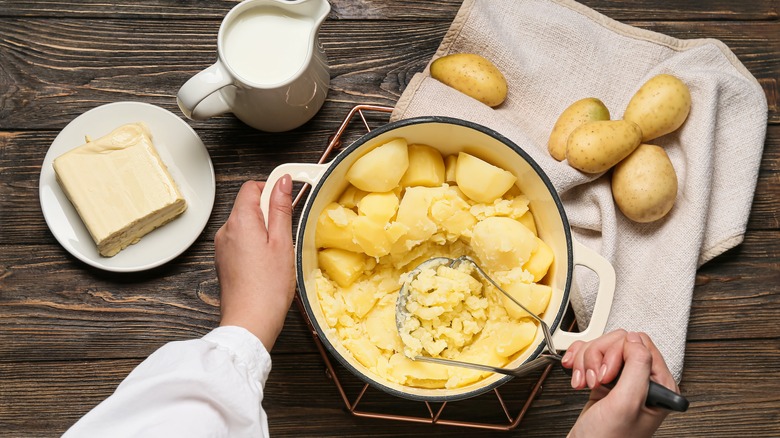Why You Shouldn't Just Use Russet Potatoes For Mashed Potatoes
If you're making mashed potatoes, don't just reach for the first bag of potatoes you see at the grocery store. Some types of potatoes are better for mashing than others. And russet potatoes aren't always the clear winner, even if they're a pretty popular choice.
According to Potatoes USA, there are more than 200 types of potatoes, but they can all can be broken down into seven categories: russet, red, white, yellow, blue/purple, fingerling, and petite. Beyond these categories, though, the Idaho Potato Commission notes that potatoes can also be divided into waxy potatoes versus starchy potatoes. The main difference between the two is water content versus starch content.
Waxy potatoes, including red, white, and yellow potatoes, have a high water content with less starch, while starchy potatoes have more starch and less water. The water-to-starch ratio impacts the way a potato cooks, meaning that, depending on whether a potato is starchy or waxy, it'll perform differently as a mashed potato. Russet potatoes are starchy, and because they're not high in terms of water content, they remain relatively the same size when cooked and produce a fluffier, drier finish.
Which type is best for mashed potatoes?
So what makes for the best mashed potatoes — waxy or starchy potatoes? A 2015 CBC article found that starchy potatoes are your best choice for mashing, every time, as the high starch content swells during the cooking process, leaving you with a fluffier mash. Both yellow potatoes and russet potatoes are highly starchy, so you can use either or both for your mashed potatoes.
Potatoes USA concurs, saying, only two of its seven categories of potatoes are suitable for mashing: again, those russets and yellow potatoes. The others on its list are better for baking, frying, or even grilling. So, once you've narrowed down your options to these two varieties, which should you go with — russets or yellow potatoes?
As both are suitable options, it really comes down to personal preference. As Good Housekeeping says, russet potatoes typically give you a lighter and fluffier mashed potato, while gold potatoes are a little creamier, denser, and buttery. Russet potatoes are also typically milder in flavor, so they're ideal if you plan on adding some extra ingredients to your mashed potatoes, such as cream cheese, ranch dressing, or sour cream. Can't decide between the two? No one would blame you for using a mix of both potato varieties.

